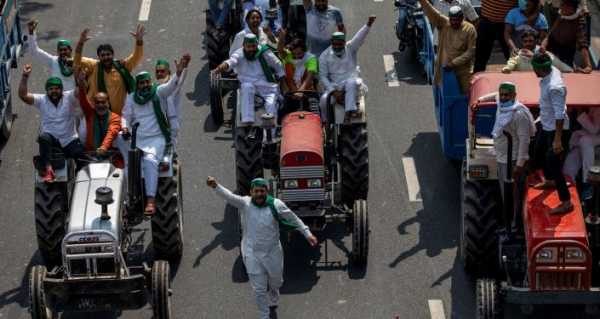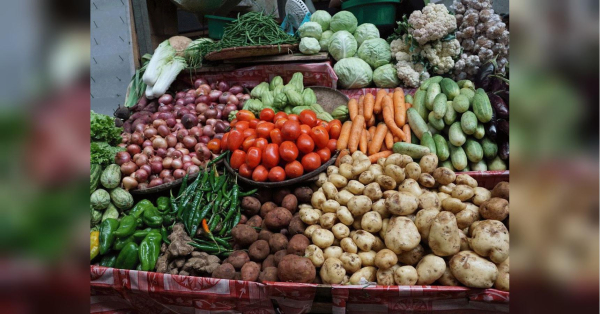
To assuage protesting farmers, New Delhi hiked the minimum guaranteed price for six crops. The government also says that diminishing the role of agricultural marketing committees would help boost farmer income.
A wave of protests by farmers erupted in India following the passage of three agriculture-related bills in the Parliament of India. In the agricultural state of Haryana, farmers have warned that they wlll intensify their agitation if government fails to revoke the bills or ensures legal safeguards from them.
One of the three new bills, the Farmers’ Produce Trade and Commerce (Promotion and Facilitation) Bill 2020, removes restrictions on inter-state and intra-state trade of agricultural products, which the government says will help boost farmer income.
Alleging that the rules on Minimum Support Price (MSP) were already being flouted with impunity, Kundu claimed the creation of private marketplaces would only increase competition and potentially further affect farmer income. The MSP is the minimum price a farmer is guaranteed on the market.
“Why would a [businessperson] pay more to farmers when they could source the same crop from another farmer at a lower price,” he asked.

Farmers sit on the water tank as they block a national highway during a protest against farm bills passed by India’s parliament
Some farmers seek to have penalty provisions added to the law for anyone seeking to buy their produce lower than the MSP.
He said farmers are already getting less than the MSP for their produce.
“Once the new rules turn effective, the private players would be able to make more profit at farmers’ expense. At least some safeguards should be guaranteed under the existing Agriculture Production Marketing Committee (APMC) system,” he added.
He also said the Narendra Modi-led federal government’s decision to introduce a system of “contract farming” would leave farmers vulnerable to the exploitation of private players.
“There should be an MSP when it comes to dealings between farmers and private companies, too,” he observed.

Farmers gesture as they block a national highway during a protest against farm bills passed by India’s parliament
Another farmer, while participating at a different protest at Rohtak city’s main market, demanded there be stringent punishment for underpaying farmers.
“While the farmer gets only eight rupees for their tomatoes, the consumer end up paying INR 80 (just over $1), he noted.
“Once the private players come in, the trend is only going to get worse,” he suggested.
Yogendra Yadav, a social scientist and member of a farmer support group called All India Kisan Sangharsh Coordination Committee (AIKSCC), told Sputnik that farmers do not trust government assurances, since they were not allowed to be involved in the decision-making process.
India’s federal agriculture minister, Narendra Singh Tomar, justified the new legislation by rejecting demands to bring the MSP under the ambit of law.
The minister has also been quoted saying that the new laws would lead to farmers being freed from the clutches of the APMCs, which, ironically, is one of the root causes of farmer protests.
Why Punjab, Haryana Emerging as Protest Epicentres?
A nationwide shutdown call on 25 September against the bills, ahead of their approval by Indian President Ram Nath Kovind, is backed by 18 opposition parties and 31 farmer organisations.
The largely agricultural states of Punjab and Haryana, however, have emerged as the epicentre of farmer push back against the government.
“Seventy percent of our population relies directly or indirectly on agriculture. That’s the reason you see farmer-led blockades everywhere,” said Kundu, a former Bharatiya Janata Party (BJP) member.
Kundu, a popular Jat community and farmer’s leader in Rohtak, was arrested on 10 September while on his way to join protesting farmers in the state’s Kurukshetra city.
Farmers from almost every district in Haryana and Punjab are protesting the three new bills.

A farmer sitting on a tractor reacts as he arrives to attend a protest against farm bills passed by India’s parliament
“Farmers in both states are relatively prosperous compared to other parts of the country. The APMC system is still strong here. There is also the need to protect the interests of commission agents,” noted Kundu.
According to the Food and Agricultural Organisation, Punjab and Haryana account for 11.3 percent of the national production of wheat and are the second and third largest producers, respectively.
Punjab is also the third largest rice producing state in the nation.
Sourse: sputniknews.com






